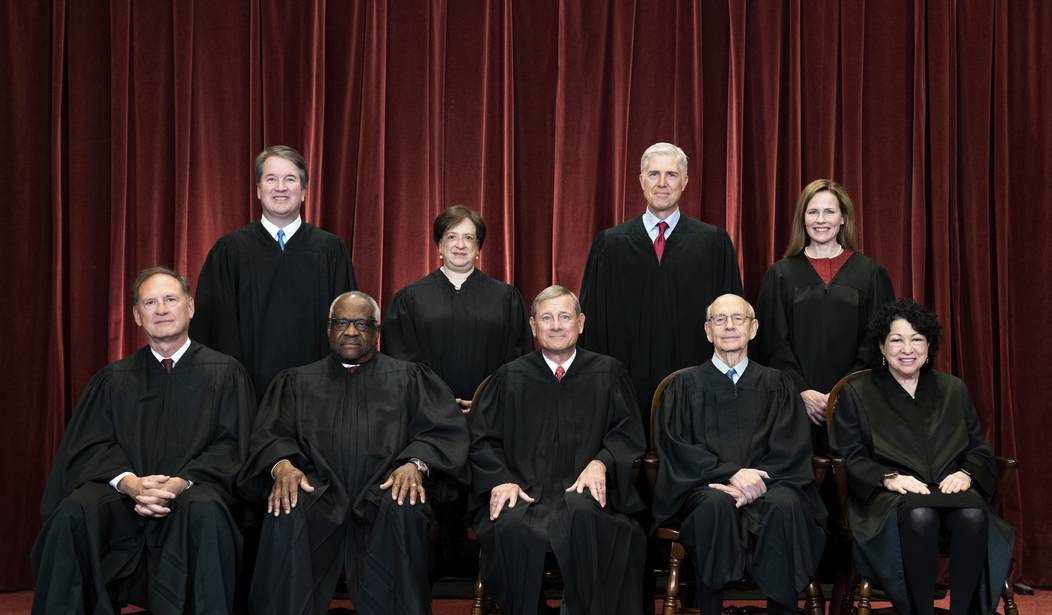Consider this an application of judicial restraint — applied across the Supreme Court’s ideological spectrum. The court turned down the opportunity to strike down the male-only Selective Service registration system on the basis of sex, a closely watched case about which Jazz wrote earlier. The effect is neither an end to or expansion of the military draft, but a punt toward Capitol Hill:
The Supreme Court on Monday turned away a challenge to the constitutionality of the federal requirement that only men register for the draft when they become legal adults, declining to revisit an earlier decision that upheld the policy on Selective Service.
The case rejected by the justices involved the Military Selective Service Act, which requires every man in the United States to register with the Selective Service System when he turns 18. Those who fail to do so can be denied federal student loans or civil service appointments, disqualified from citizenship or even face criminal charges.
But a group called the National Coalition for Men and two of its members, James Lesmeister and Anthony Davis, argued the gender-based requirement is unlawful sex discrimination in violation of the Constitution and asked the Supreme Court to invalidate the law.
Normally a refusal to grant cert doesn’t prompt any explanation, although occasionally a dissent from that decision gets published. In the orders this morning, the odd triumvirate of justices Sonia Sotomayor, Stephen Breyer, and Brett Kavanaugh published a statement defending their nay votes. They point to recent action in Congress to review the Selective Service Act, and argue that the issue should be resolved by the legislature rather than the courts. Sotomayor authored the statement:
Petitioners, however, are not the only ones asking whether a male-only registration requirement can be reconciled with the role women can, and already do, play in the modern military. In 2016, Congress created the National Commission on Military, National, and Public Service (NCMNPS) and tasked it with studying whether Selective Service registration should be conducted “regardless of sex.” National Defense Authorization Act for Fiscal Year 2017, §§551(a), 555(c)(2)(A), 130 Stat. 2130, 2135.
On March 25, 2020, the Commission released its final report, in which it recommended “eliminat[ing] male-only registration.” Inspired to Serve: The Final Report of the [NCMNPS] 111. Among other things, the Commission found that “[m]ale-only registration sends a message to women not only that they are not vital to the defense of the country but also that they are not expected to participate in defending it.” Id., at 118. Just a few months ago, the Senate Armed Services Committee held a hearing on the report, where Chairman Jack Reed expressed his “hope” that a gender-neutral registration requirement will be “incorporated into the next national defense bill.” Tr. of Hearing on Final Recommendations and Report of the [NCMNPS] before the Senate Committee on Armed Services, 117th Cong., 1st Sess., 21 (Mar. 11, 2021).
It remains to be seen, of course, whether Congress will end gender-based registration under the Military Selective Service Act. But at least for now, the Court’s longstanding deference to Congress on matters of national defense and military affairs cautions against granting review while Congress actively weighs the issue. I agree with the Court’s decision to deny the petition for a writ of certiorari.
This isn’t exactly a moot issue. We haven’t had a draft in almost 50 years, of course, and it would take Congress to authorize one. We do still have compulsory registration into the Selective Service, however, and thus any gender discrimination creates an arguable real burden on males (or even arguably on females). One has to wonder why even this vestige of World War II and the Cold War still exists, since few if any calls for such service have been made in many Americans’ lifetimes — except for political posturing over “national service.” And even that usually includes women.
The Supreme Court had some room to take up this issue if they desired, in other words. The fact that they passed, and explicitly on the basis of judicial restraint, seems encouraging. The more the court passes the buck back to Congress on such matters, the better.








Join the conversation as a VIP Member